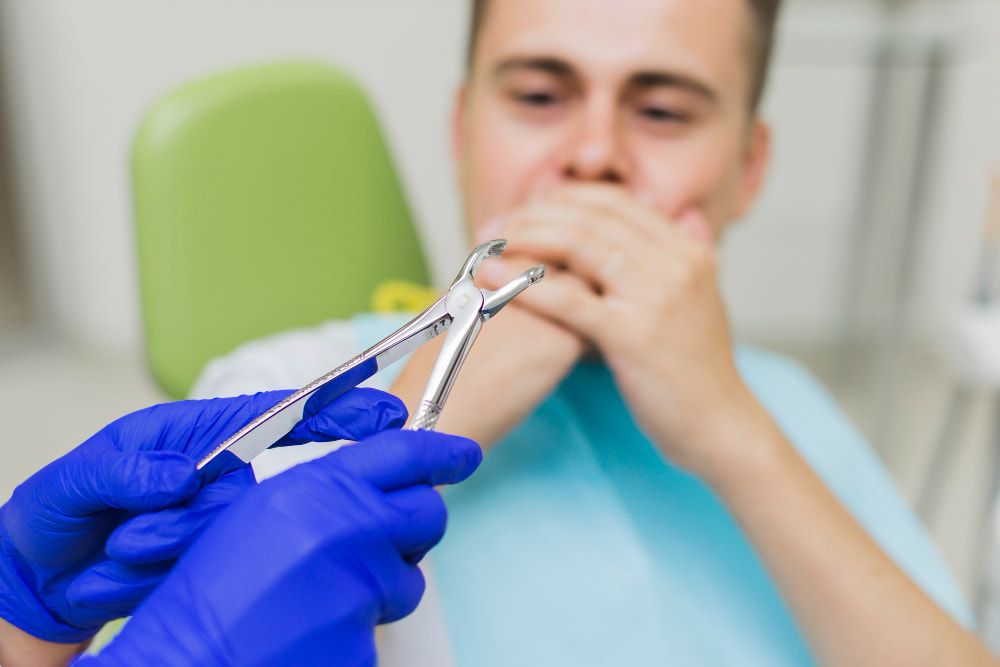
The Role of Nutrition in Gum Disease Treatment and Prevention

Good nutrition plays a crucial role in maintaining overall health, and it also has a significant impact on your oral health, particularly when it comes to gum disease treatment and prevention. In this blog post, we'll explore how your diet can influence the health of your gums and provide practical tips for maintaining healthy gums through proper nutrition.
Understanding Gum Disease: A Brief Overview
Before delving into the role of nutrition, let's briefly recap what gum disease is. Gum disease, or periodontal disease, is an infection caused by bacteria that affects the gums and the supporting structures of the teeth. It typically begins as gingivitis, which is characterized by red, swollen gums that bleed easily. If left untreated, it can progress to periodontitis, a more severe form of the disease that can lead to tooth loss - and an unenjoyable experience for all.
The Link Between Nutrition and Gum Health
Vitamin C: Vitamin C is essential for gum health as it helps to maintain the collagen in your gums. Collagen is a connective tissue that supports your gums and keeps them attached to your teeth. Strawberries, broccoli, Citrus fruits, and bell peppers are excellent sources of vitamin C. Calcium: Calcium is necessary for strong teeth and bones, and it also supports gum health. Dairy products like yogurt and cheese, as well as leafy greens and almonds, are rich in calcium. Vitamin D: Vitamin D helps your body absorb calcium, making it crucial for gum and tooth health. Vitamin D can be obtained from sources such as fatty fish, fortified dairy products, and exposure to sunlight. Antioxidants: Antioxidants, such as vitamin E and beta-carotene, can reduce inflammation in the gums. Foods like nuts, seeds, spinach, and sweet potatoes are packed with these beneficial nutrients. Omega-3 Fatty Acids: Omega-3 fatty acids have anti-inflammatory properties that can benefit gum health. Fatty fish like salmon and walnuts are excellent sources of omega-3 fatty acids.Tips for Gum Disease Prevention and Management Through Nutrition
Eat a Balanced Diet: You’ll find this tip around the internet, but you need to consume a well-rounded diet that includes a variety of fruits, vegetables, lean proteins, and whole grains to ensure you're getting a wide range of essential nutrients. Limit Sugary and Processed Foods: Sugary and processed foods can contribute to the growth of harmful bacteria in your mouth. Reduce your intake of sugary snacks and beverages to promote better oral health. Stay Hydrated: Drinking water helps rinse away food particles and bacteria in your mouth, promoting better oral hygiene. Avoid Tobacco: Smoking and tobacco use are major risk factors for gum disease. Quitting smoking can lead to a substantial improvement in your gum health (and overall health!). Regular Dental Check-ups: Visit your dental clinic in OKC regularly for check-ups and cleanings. They can monitor your gum health and provide guidance on nutrition tailored to your specific needs.By paying attention to your diet and making healthy food choices, you can complement your oral hygiene routine and support gum disease treatment and prevention. Remember that a holistic approach to health, including both oral and nutritional care, can contribute to a healthier smile and overall well-being.
Get Effective Gum Disease Treatment
Don't let gum disease affect your smile. Our team at Reflections Dental Care offers effective treatments to restore your oral health. Call us today at (405) 751-4556 to schedule your consultation!